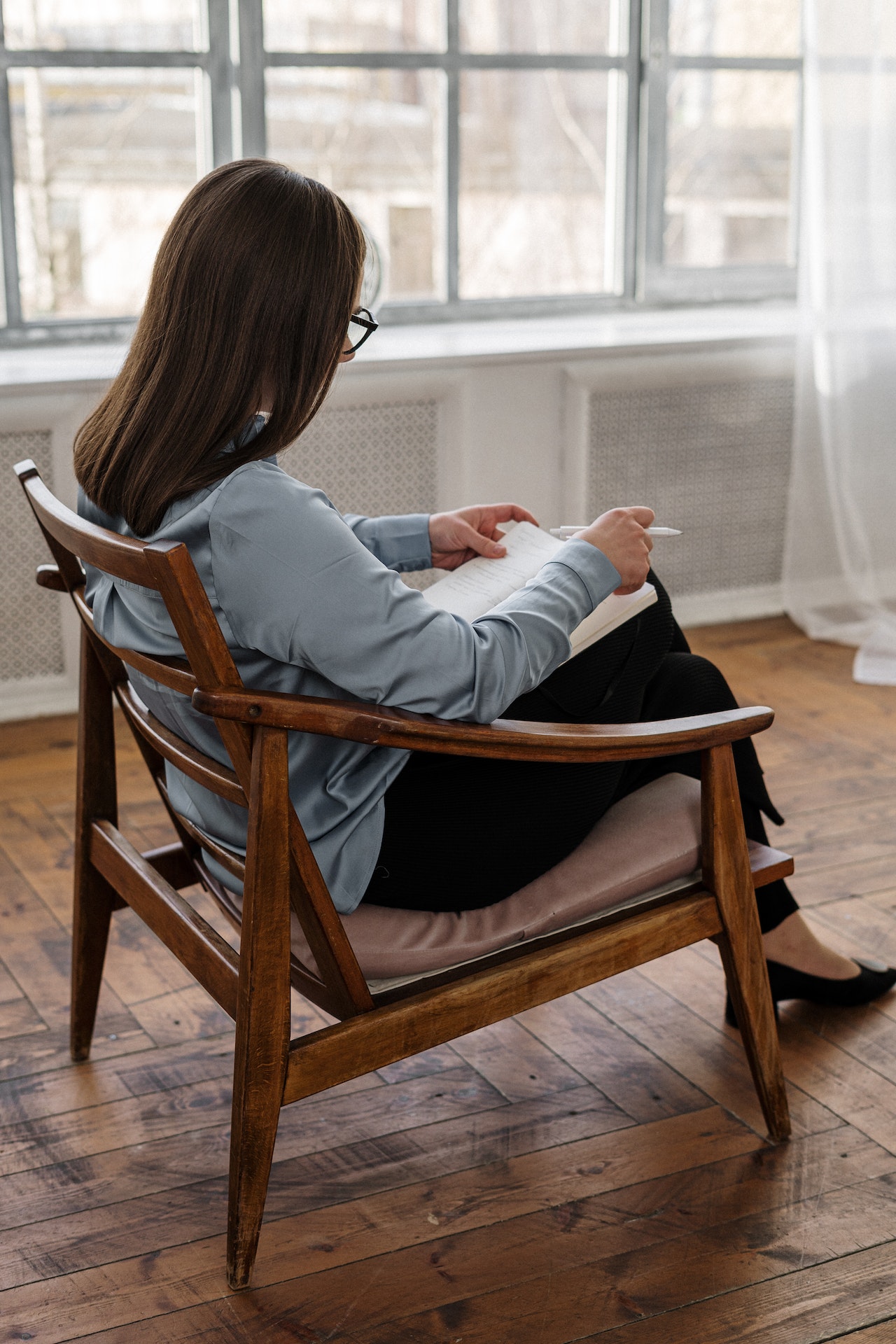Art Therapy
Art offers a window into a person’s life. When an individual has an opportunity to draw a picture, paint a portrait or make a sculpture, it offers them a way to express themselves. It doesn’t matter whether anyone else understands their artwork; all that matters is that they’re able to put pen, pencil, or paintbrush to paper. In many cases, when someone enters a recovery program, such as the one Bayview Recovery, art therapy is an invaluable tool. An art therapy program allows people to express their thoughts, feelings, and challenges without fearing judgment.
At Bayview Recovery, we want to ensure that each person in our therapy treatment program has the tools they need to recover. Our art therapy program is an excellent tool to help our patients and residents recover from drug and alcohol addiction. Furthermore, we offer individualized treatment programs, so each person gets the tools they need to regain their sobriety. To determine whether you or someone you love could benefit from an art therapy program, please reach out to Bayview Recovery today at 855.533.0409.


What Is Art Therapy?
Bayview Recovery offers art therapy as one of many treatment modalities to help individuals overcome their addiction or co-Bayview Recovery offers art therapy as one of many treatment modalities to help individuals overcome their addiction or co-occurring disorder and complete their recovery. Art therapy encourages creativity and self-expression, helps build confidence, and enables patients to manage their triggers and stress. In this way, art therapy can help individuals in recovery improve their physical, emotional, and psychological health and sustain their long-term sobriety.
We give each person the means to express the thoughts, feelings, and emotions that they might not be able to communicate verbally. Sometimes people find it difficult to articulate or painful to share their challenges. In such cases, art therapy can be a powerful tool in the healing process. In the form of art, an individual can face and communicate many deep-seated and painful issues and emotions, mitigating the tension and stress that they bring with them. This can allow the individual to be heard while maintaining their feelings of safety and security.at they bring with them. This can allow the individual to be heard while maintaining their feelings of safety and security.
How Art Therapy Benefits Those in Recovery
Art therapy teaches many valuable skills which can extend beyond treatment and into your life without drugs or alcohol. This treatment modality can help individuals reduce stress, anxiety, and reactiveness by enabling them to manage their physical responses to a wide variety of intense or challenging situations. Art therapy also encourages individuals to feel and explore their emotions fully before evaluating or judging them. By withholding judgment, an individual can avoid negative self-attitudes and decrease his or her desire to use drugs or alcohol as a means of coping.
Instead, those in recovery can develop a healthy outlet for these feelings, which otherwise might threaten their goals of becoming healthy again. Through making art, these individuals will also find new ways to improve their view of themselves. This improvement help sustain their long-term health. An individual need not have any previous artistic training or talents before beginning art therapy. The skills they will develop while making art at Bayview Recovery will be yet another source of self-esteem and inner-confidence.
Further, when an individual begins to express their deepest personal concerns in the form of art. They also deepen their relationship with themselves, learn to rely on their own intuition, and trust their internal resources. All of these can help protect individuals from returning to substance abuse. We’ll combine art therapy with therapeutic modalities, holistic therapies, or a 12-step program, including options such as:
Cognitive-behavioral therapy
Dialectical behavior therapy
Family therapy
Individual therapy
Group therapy
Group therapy
Each of these treatments, in combination with art therapy, can mutually reinforce the benefits of each treatment pathway.


What Happens During Art Therapy?
If you seem like a good candidate for art therapy, Bayview Recovery will incorporate an art therapy program into a broader and more comprehensive treatment plan for you. An individual may participate in individual or group projects. This project depends on what will best serve the person’s needs and personality and offer the greatest benefit. You will get to choose the field of art you would like to focus on. Then, a trained counselor will help you learn the medium both as a tool for artistic expression and personal healing. The art one creates at Bayview Recovery is never judged; it is a vehicle for achieving health, wellness, and sobriety.
The art materials you use may depend on your unique situations. Some experts suggest a therapeutic difference between art tools. Controlled or dry art tools, such as colored pencils, might be better for one person, while another individual may require wet and more challenging tools, such as oil paints. Our trained art therapists will determine which tools are necessary for your unique needs based on your frame of mind, your challenges, and a range of additional factors. They can also guide you through any complications that arise during your creative process.
We Can Help!
Art therapy is one of many pathways to healing that can form a part of a more comprehensive rehab plan. In addition to art therapy, you can also begin a meditation or yoga practice as a part of a holistic healing program that will accompany your clinical treatment.
Recovery is a challenging time for most people. Still, art therapy can help ease this transition, support your treatment and provide you with a lifelong means to acknowledge your humanity and stay healthy and sober. You can reap the benefits of this therapy and a customized plan for healing in our comfortable, residential-based facility. Then, you won’t have to miss out on any of the comforts of home while on your new journey. We use art therapy in a wide array of our treatment programs, including:
Alcohol addiction treatment
Heroin addiction treatment
Cocaine addiction treatment
Meth addiction treatment
Opioid addiction treatment
Call Bayview Recovery today at 855.533.0409 to learn more about all our programs and begin your journey towards health and wellness.

“The staff at the center has been remarkable in their care for our loved one. Tuni was with us the whole way as we tried to get this person into treatment. They continue to assist us as the process continues. Great work!”
Ray O
“I have been trying to get sober the past 3 years and I have been to treatment 5 times. Bayview Recovery was my 6th time. They helped me get to 142 days sober! I was a handful hot mess when I got there but the team never gave up on me. They work with families and they truly care about them too. Bayview house’s are clean and comfortable and the staff is amazing. They plan for fun events weekly and they want you to have fun. If your looking for something different call them it will save your LIFE!”
Cindy J
“Bayview is dedicated to providing clients the healthiest environment to develop a solid foundation in their recovery. The therapists and medical team are devoted to ensure clients have the best individualized care. I highly recommend Bayview for anyone seeking a highly professional treatment program. The care and compassion given to clients is remarkable.”
Robin M
“This is a fantastic facility with outstanding staff. If you or a loved one is struggling this is a great program to start the journey of recovery and get life long skills and relationships to begin a new life!”
Garrett T
“Just picked up our daughter after 90 days at Bayview Recovery. Loved the staff and facility, do not know what the future holds ???????? but while at Bayview , always felt informed. Highly recommend, incredibly helpful especially at the very beginning when we were so helpless and needed help the most – God Bless.”
Rosie S
Dave Cundiff, MD, MPH is an experienced leader in the field of Substance Use Disorder treatment. He works with patients suffering from Substance Use Disorder to evaluate their medication needs and prescribe treatments accordingly. In addition, he regularly participates in all-staff debriefing sessions involving peers, nurses, and other prescribers. He also reviews and advises on policies, procedures, and techniques for treating substance use disorder.




